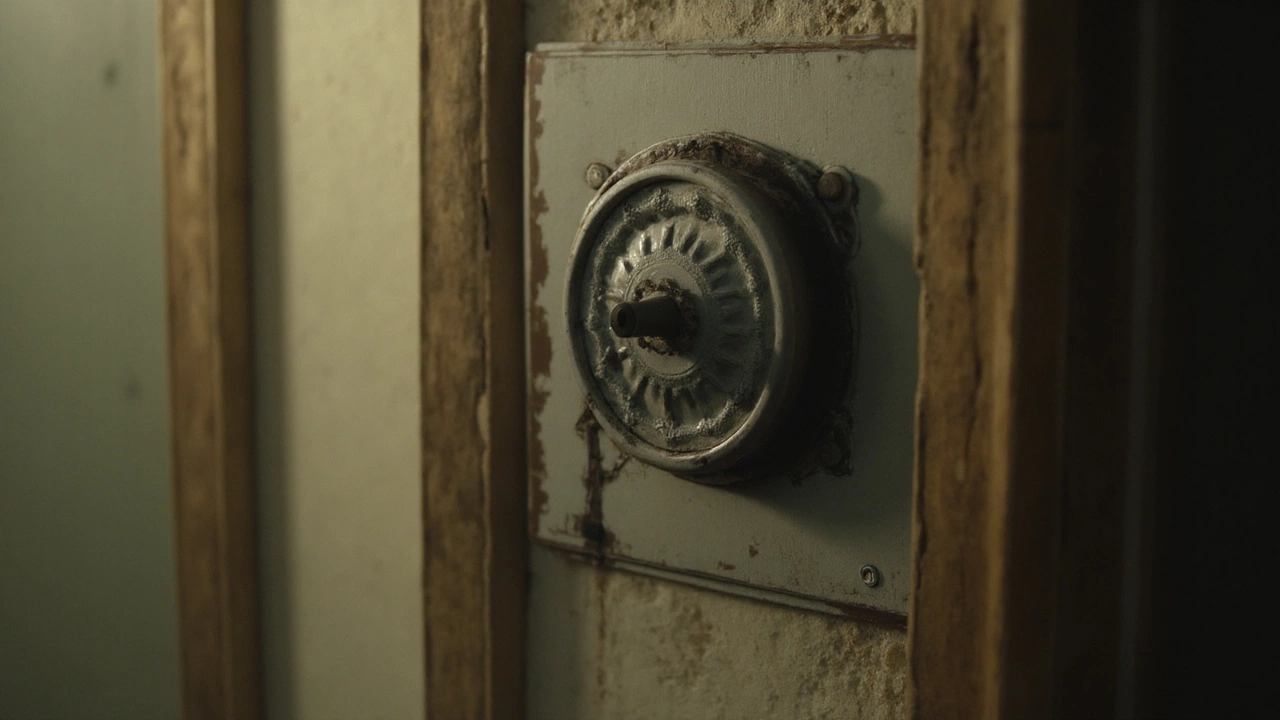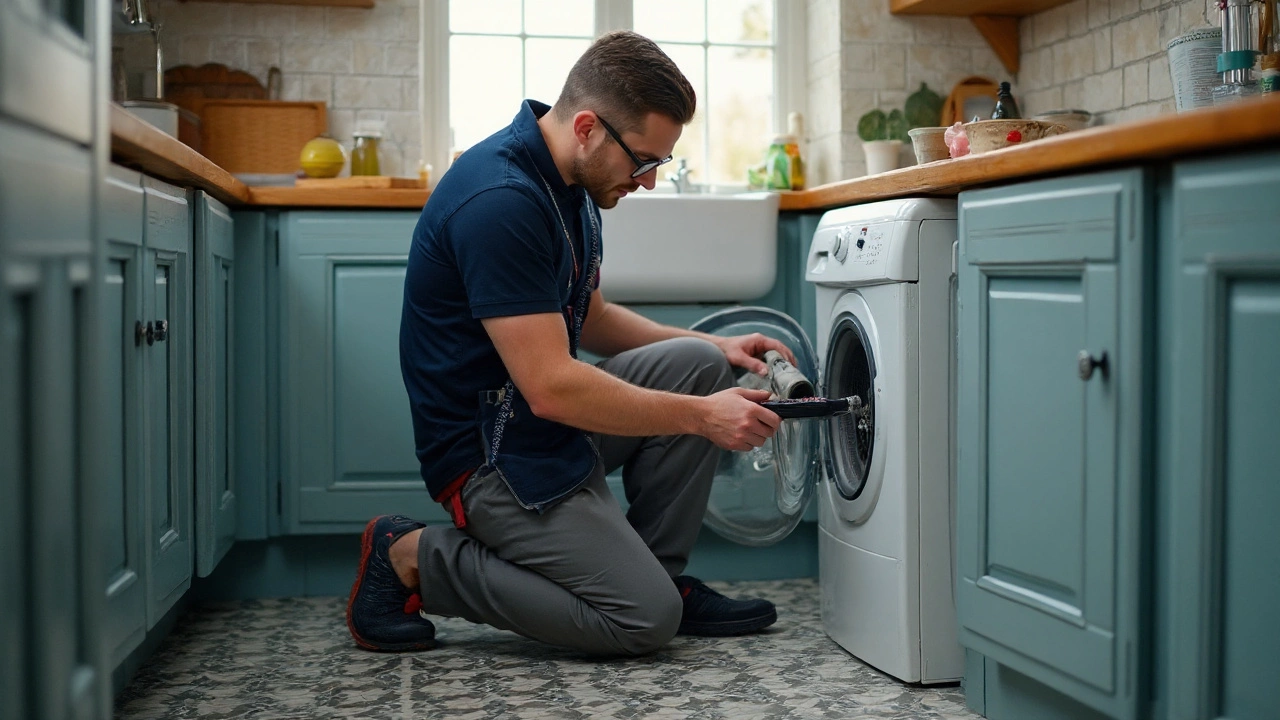September 2025 Appliance Repair Insights
If you’ve been scrolling through our blog this month, you’ve probably seen three practical pieces that tackle everyday home‑tech headaches. Whether you’re puzzling over which fan keeps your kitchen fresh, why your water heater keeps tripping, or what a real appliance specialist brings to the table, we’ve broken each topic down into bite‑size advice you can act on right away.
Ventilation Fan vs Extractor Fan: What Sets Them Apart
First off, the word “fan” can be confusing because not all fans do the same job. A ventilation fan moves air through a whole room or a larger area, often pulling fresh air in from outside and pushing stale air out. Think of it as the gentle breeze that keeps a loft feeling airy. An extractor fan, on the other hand, is designed for high‑pressure removal in specific spots – like over a sink, shower, or cooking hob. It’s built to pull moisture, grease, or odors straight out, so you don’t end up with damp patches or lingering smells.
Placement matters. Ventilation fans sit higher up, usually on a wall or roof, to promote circulation. Extractors live low, tucked into cabinets or ceilings right above the source of the mess. Airflow rating (CFM – cubic feet per minute) also varies: a general ventilation fan might deliver 100‑150 CFM, while an extractor can push 200‑400 CFM to handle the extra load from a busy kitchen.
Noise and energy use are the next trade‑offs. Vent fans tend to run at a lower speed, so they’re quieter but also slower at clearing out pollutants. Extractor fans crank up higher, which means a bit more whirr – but they get the job done fast. Look for models with energy‑star labels; they often use brushless motors that keep power bills down without sacrificing performance.
Why Resetting Your Water Heater Over and Over Is a Bad Idea
Now, let’s talk about that water heater that keeps tripping its reset button. The reset switch isn’t a toy – it’s a safety feature that trips when the heating element overheats or when there’s a short in the thermostat. Hitting it repeatedly can mask a deeper problem and even cause the unit to fail completely.
Common culprits include a faulty temperature‑pressure relief (TPR) valve, sediment build‑up that makes the element work harder, or a broken thermostat. A quick visual check for any leaks, corrosion, or strange noises can point you in the right direction before you call a pro.
If you must reset, turn off power, wait a minute, and press the button once. If it trips again within a short period, shut it down and let a qualified technician investigate. Trying to “force” a reset can lead to water leaks, scalding risks, or even an electrical fire.
When you do call a professional, ask about the cost of a diagnostic visit and whether the issue can be fixed with a simple part replacement. In many UK cases, a new heating element or a cleaned burner can restore full function for under £150, saving you from a costly full‑unit replacement.
Finally, a quick tip: schedule a yearly maintenance check. Flushing the tank, tightening connections, and testing the TPR valve can keep the heater humming quietly for years.
What does an appliance specialist actually do? Think of them as the Swiss‑army knife of home repairs. They diagnose, dismantle, and replace parts across a range of devices – from washing machines that won’t spin to dishwashers that leak. In the UK, many specialists hold Gas Safe or F‑Gas certifications, meaning they’re trained to handle both electrical and gas‑related repairs safely.
Typical visit costs hover around £60‑£80 for the call‑out, plus labour rates of £50‑£70 per hour. Most pros will give you a clear quote before starting any work, and they’ll weigh repair versus replacement based on the appliance’s age, part availability, and the estimated lifespan after the fix.
When you’re choosing a specialist, look for reviews that mention punctuality, transparent pricing, and tidy clean‑up after the job. A good technician will also explain the issue in plain language – no jargon, just the facts you need to decide whether to repair or replace.
That wraps up our September roundup. Use these tips to pick the right fan, reset your water heater safely, and know exactly what to expect from an appliance specialist. Got a question or need a repair booked? Our team is just a call away, ready to get your home running smoothly again.
Ventilation Fan vs Extractor Fan: Key Differences Explained
0 Comments
Discover how ventilation fans and extractor fans differ in function, placement, airflow, noise, and energy use. Get clear guidance for choosing the right fan for your home.
Read MoreWhat Happens If You Keep Resetting Your Water Heater? Risks, Fixes, and Safe Steps
0 Comments
If your water heater keeps tripping, stop hammering reset. Learn the real risks, quick checks, safe resets, when to call a pro, and how to fix it for good.
Read MoreWhat Does an Appliance Specialist Do? Duties, Costs, and When to Call One
0 Comments
What an appliance specialist actually does, what a visit looks like, typical UK costs, repair vs replace rules, and how to choose the right pro.
Read More

